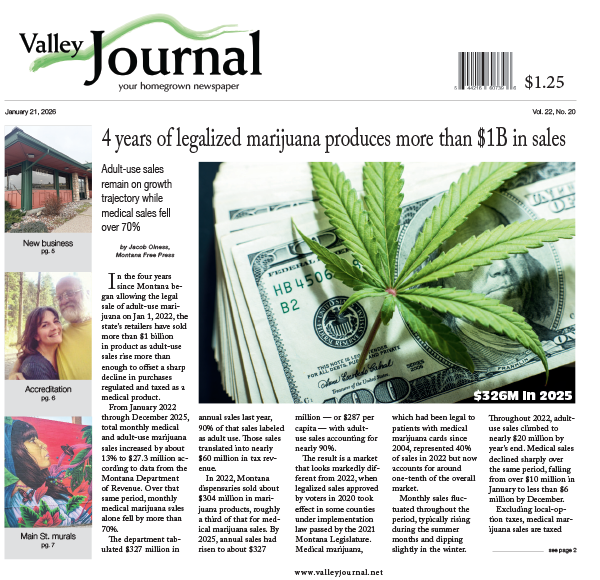Dream of restoring language translating to reality
Hey savvy news reader! Thanks for choosing local.
You are now reading
1 of 3 free articles.
ARLEE — Nearly nine years ago, a revolution started in Arlee. It began when the Nkwusm Salish Language Revitalization Institute opened its doors, and it continues today as a dedicated group of teachers and students work to revive the Salish language on the Flathead Reservation.
“The number of adult speakers is shrinking every year,” Nkwusm co-founder Tachini Pete said.
Only 50 fluent Salish speakers remain, but the number of students of the language is growing all the time. Twenty-seven students from age 2-and-a-half through eighth grade are enrolled full-time in the Nkwusm School, where they study all their subjects in both Salish and English.
And a few dozen adults — the number varies by the week — attend beginning Salish classes held in the evenings in Arlee and Pablo, a program that Pete hopes will expand into a full-time immersion program for adults. Although each classroom at Nkwusm is co-taught by a fluent speaker, the teachers need more intensive language training to reach fluency.
“With about 50 speakers (of Salish) left here, our time is critical,” curriculum specialist Adele Martin said.
Pete was 21 when he realized the urgency of reviving the language. Back then, a professor at Salish Kootenai College told Pete there were about 200 speakers left.
“When she said that, my whole world turned upside down,” Pete said. “I decided I was going to do everything I could to learn the language.”
He began studying Salish, and soon found there were other young people interested in bringing the language back. They joined forces and eventually the Nkwusm project was born.
The school strives to teach more than just Salish words and grammar, passing on a strong sense of cultural identity to its students.
“We want them to be strong and know who they are,” Pete said.
According to the students, the philosophy is working. Nkwusm means “one fire and one family,” fifth-grader Anna Henry explained, and Nkwusm is really more like a family than a school.
“Nkwusm means everything to me,” she said.
From the day students enter Nkwusm’s preschool and begin learning the Salish alphabet under the direction of tribal elder Stephen Small Salmon, they’re taught to value their cultural heritage and treasure the language of their ancestors.
“They don’t realize they’re the ones carrying on who we are,” development director Patty Stevens said of the students.
Nkwusm’s goal is to one day add a high school, school director Rosie Matt said, but for now, they have to transfer after graduating from eighth grade. The hope is that by that point, they’ll be firmly grounded in the language and will continue to learn and educate others on the importance of keeping Salish alive.
Nkwusm isn’t alone in working on that task. Several dialects of Salish were once spoken throughout the Northwest by tribes such as the Kalispel and Spokane, but the few Salishian languages still around are endangered. That’s why three years ago, several Salish-speaking tribes got together for a language conference that’s become an annual event. Nkwusm staff attended the meeting last year, and this year, Pete was the keynote speaker at the conference, held last week in Spokane.
Nkwusm offers monthly tours of the school and curriculum department and invites anyone interested in learning about the project to visit the school. More information can be found at www.salishworld.com.
















